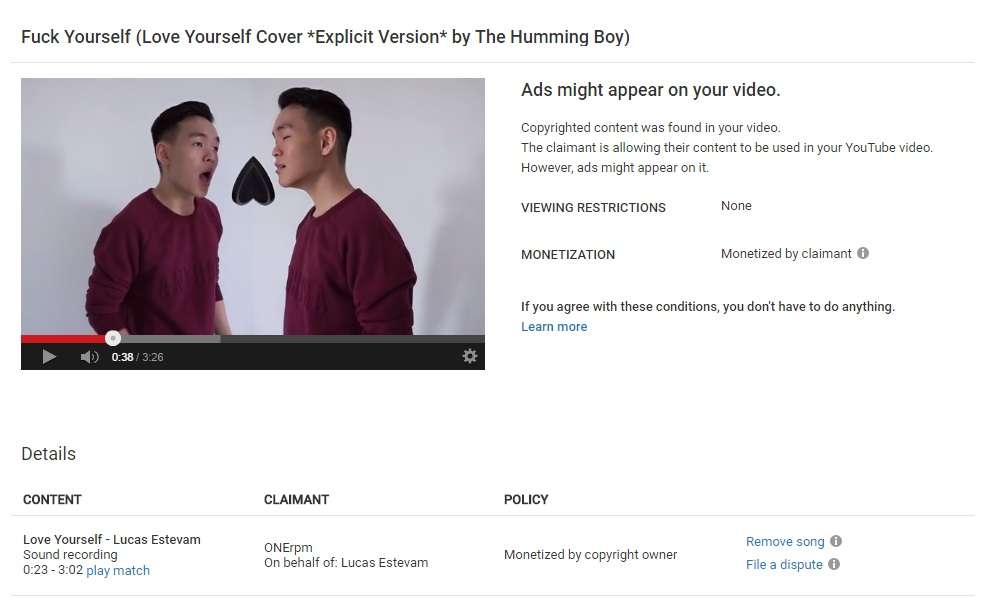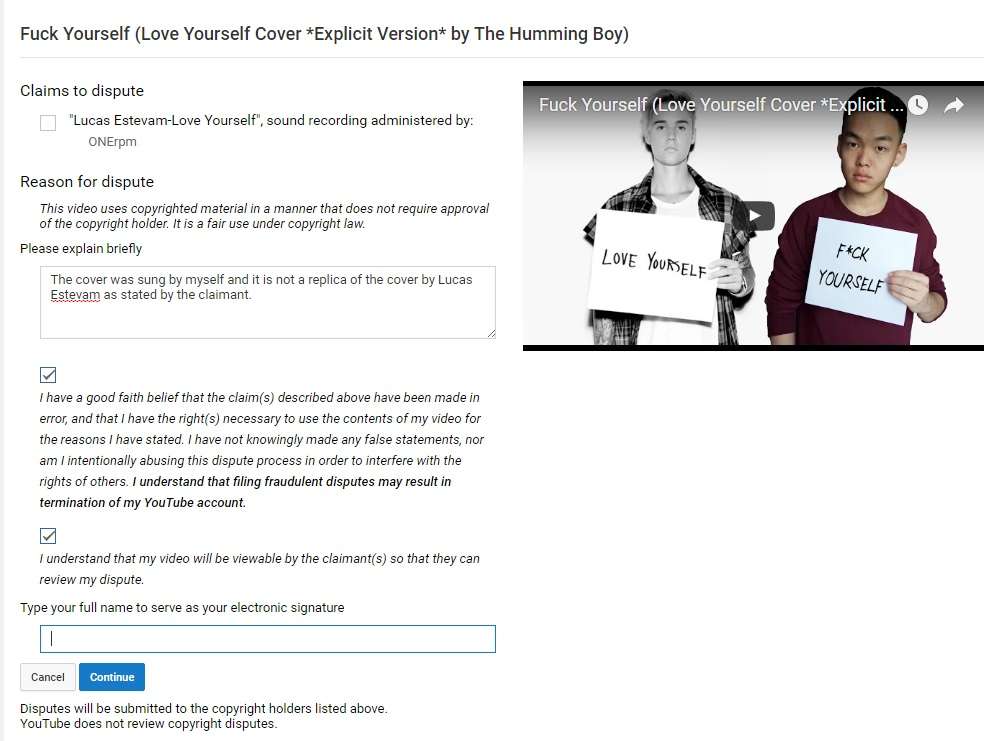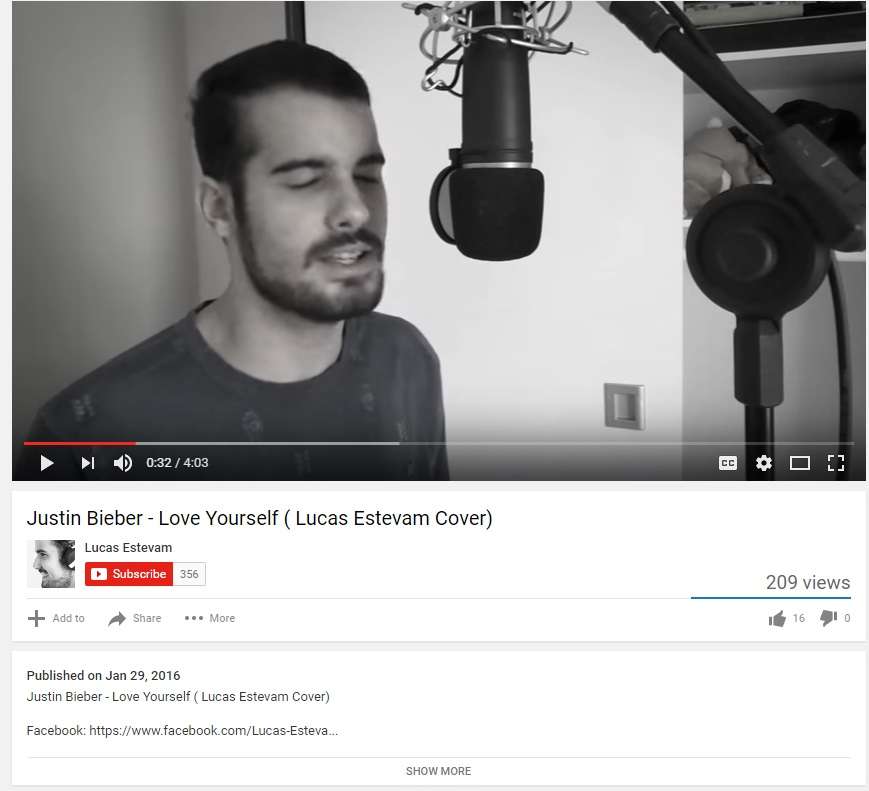The karaoke guitar backing is being used in another video and that's what Content ID picked up on and flagged you for.
You should have no problems countering it by saying that the background track was used under Creative Commons (include a link) and the remaining is completely your own.
That said, YouTube should flag it on their own as a cover (as they do with all music covers) and a portion of the revenue will be justifiably taken from you and given to the people/ companies who hold the original song's rights.... but that is a separate issue than what has happened here.[DOUBLEPOST=1479408854,1479408566][/DOUBLEPOST]
...but that's exactly what you attempted to do with your first post. If you don't know the legal answer for something in the copyright forum, you should refrain from offering any answers or suggestions. Doing so is not only extremely dangerous, but the repercussions could be disastrous including copyright strikes, a channel being closed, or actual legal penalties and fines.
I wanted to amplify this comment (since it's correct) as well as note what is happening mechanically since some of the other comments make it sound like this is a malicious thing, and it really isn't.
Lucas Estevam has apparently registered his cover which uses the same background track in content ID (which distribution services like OneRPM do, in addition to putting things on itunes, spotify, amazon, etc.,). That's not "fake" copyright in and of itself -- cover artists do have the right to distribute their covers and to protect the copyright on the "derivative" aspect of their work (to the extent that their derivative is approved by the original copyright owner, which in this case, oneRPM also ensures that the appropriate licenses are paid for, so it is)
Lucas's derivative uses shared creative commons material (the backing track), and that also isn't a problem. It also isn't necessarily a problem for Lucas to seek copyright for his derivation (that is, his voice).
The issue is with content ID's automatic system. Either content ID isn't really granular enough to tell the difference between Lucas Estevam's voice (which is what he has copyright to) and the backing track (which he doesn't), or OneRPM wasn't able to block the creative commons aspect in its reference content. So, it's overactively picking up other songs (like yours, topic creator) using the same backing track.
You *should* be able to counter this without an issue. However, I have heard horror stories of rights management companies sometimes being a bit resistant to release the claim (even though they don't have a good case).
My one possible quibble is in the screenshot you provided, I don't think you've provided the right dispute reason -- you don't want to claim fair use, because you're not using Lucas's content in a transformative way. Instead, I think the one you want is "I have a license or permission from the proper rights holder to use this material" (and that's where you go into the Creative Commons stuff, as per Shakycow.)






